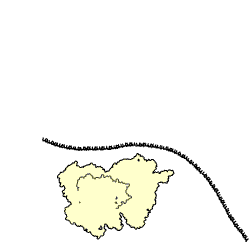Last night I attended a talk by Ray Kurzweil. In the Q&A, he said that they were working on removing human bias from machine learning without a hint of irony.
When all you have's a hammer, the world is made of nails. Gilder made the point in Life After Google that whenever we say "machine learning" or "AI" we're really talking about Markov chains, which are useful for some tasks and suck balls for others. Nonetheless, everyone in tech right now is basically throwing Markov chains at every fucking thing they see, whether it's applicable or not, because that's where the tools are. The irony isn't lost on me: an entire industry obsesses over how great AI is, then comes home and chortles over how stupid AI is.
On a related tangent, his talk and curve extrapolation got my gears turning. I'm trying to better understand the root of the inherit skepticism I have for AI. It induced me to tweet a rare somewhat related position: https://twitter.com/MarkKatakowski/status/1043527784134574080 I expect that Kurzweil would argue that nature hit a roadblock with the birth canal, and that if we could just deliver however these folk do then we'd be playing 3D Go. But I am reticent to count nature out when it comes to creative solutions. What can a mirror reflect besides the world? We have uncovered plenty that we did not know, but have we ever uncovered anything that we could not?

OHHHHHHH SHIT DID YOU JUST POST AN ANIMATED GIF Hey everybody! mk just posted an animated gif! The three books of Robert Charles Wilson's Spin trilogy basically argue that the evolutionarily dominant strategy of gray goo is to capture and tend to intelligence because of its anti-entropic tendencies.
Not his point, really - the argument is if intelligence arises in one place but not in another, the gray goo will show up eventually and as the gray goo is immortal and intelligence is not, that resource will be conserved. As a thought experiment it's novel and reasonably well-argued. The middle book is kind of shit, though.
